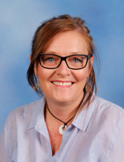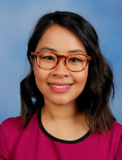"STEM Inquiry Learning" Professional Learning Day
28 March 2018
Wednesday 23rd May 2018
This is a full day Professional Learning program targeted to Middle Years teachers. The aim is to provide teachers with curriculum resources and engaging inquiry learning tasks that will allow students to discover, challenge their thinking and excite them about the STEM disciplines. The emphasis will be on professional sharing, showcasing good practice and networking.
Keynote: "Getting bang for your buck! Teaching approaches that support deep understanding"
Teachers make choices not only when they plan learning but throughout every lesson. What types of tasks or activities are the ones which cause students to acquire deep understanding of the topic being studied? Are there aspects of our tasks which put students off attempting the work? How can we ensure that students remember the important stuff? Do the tasks we choose promote certain teaching practices over others?
The Sunshine College mathematics team have transformed teaching practices to ensure student learning improvements are better than those previously experienced. Student growth outstrips comparable Victorian growth expectations and the previous growth experience by individual students. This keynote will discuss how they get bang for their educational buck!
Yvonne Reilly
Originally a Scottish research scientist, Yvonne Reilly migrated with her family to Australia in 2006 and soon after began work as a teacher of mathematics and science at Sunshine College. In 2011 she completed her Master's degree in School Leadership specializing in Numeracy at Monash University. In 2013, Yvonne was featured in The Age and The Sunday Mail because of her work in Mathematics. She has co-authored academic papers and teacher resource books. In 2015, Yvonne was awarded the prestigious Educator of the year award as part of the Brimbank Council's Australia Day celebrations. Yvonne is currently employed as the Educational Leader responsible for maths and numeracy development at Sunshine College. Yvonne is currently a PhD candidate at Monash University.

Thao Huynh, BSc, Grad Dip, MT
Thao joined Sunshine College as a graduate maths teacher in2012. She demonstrates her significant teaching skills daily and generously supports the learning of others. She has been a campus Numeracy coordinator since 2014 at which point she facilitated the creation of differentiated mathematics resources for students in years 7-10. Thao completed her Masters of Teaching from Melbourne University in 2017, and became a Teaching and Learning specialist at the college. She has presented workshops at the Mathematics Association of Victoria conferences, and a poster on Reciprocal Teaching in Mathematics at the 2016 PME in Szeged, Hungary. Thao is part of the maths team recognised in 2015 with a Victorian Excellence Award for Outstanding School Advancement and the Lindsay Thompson Overall winner and is currently working as both a leader in the maths team at Sunshine College and the leader of the STEM teaching and learning group.

Program
| 8.30am - 9.00am | Registration & Collegiate sharing |
| 9.00am - 9.10am | Introduction |
| 9.10am - 9.55am | Keynote - Yvonne Reilly & Thao Huynh |
| 9.55am - 11.10am | Workshop 1 (75 mins) |
| 11.10am - 11.40am | Morning Tea (supplied) |
| 11.40am - 12.55pm | Workshop 2 (75 mins) |
| 1.55pm - 1.30pm | Lunch (supplied) |
| 1.30pm - 2.45pm | Workshop 3 (90 mins) |
| 2.45pm - 3.00pm | Plenary & networking |
Workshops :
Parallel Session - Workshop 1:
1A. Setting up a digital learning space within your school, Dean Daminen, Mackellar PS
Dean will outline how his school has developed the philosophy and practical aspects underpinning their digital learning space "The Hive". Participants will gain valuable knowledge in regard to The Hive concept and the coaching model that Mackellar PS utilizes to increase teacher confidence and capacity in delivering Digi-tech learning across the school. Participants will gain hands on experience in some of the technology used at Mackellkar PS, including Makey Makey and cardboard challenges using Makedo tools. Audience: Upper Primary.
1B. Technologies to support STEM Learning - 3D Designing, Modelling & Printing, Sally Ericksen, Coder Academy
This session will explore the multidimensional development application "TinkerCad" to create 3D objects on a scalable plane, exploring mathematical concepts with authentic purpose. Experiment with circuits, transitioning from block to text based C++ coding with arduino board projects and rapid design prototyping. Animate or create structures while applying mathematical proficiencies - fractions, shape classification, angle manipulation, geometric transformation and measurement. Enables a highly creative, relevant and flexible STEAM pathway for teachers and students. Audience: Upper Primary & Lower Secondary.
1C. Science by Doing: Engaging Students with Science, Professor Denis Goodrum, Australian Academy of Science
How can we excite and engage high school science students? The Australian Academy of Science has developed a high school program called Science by Doing based on extensive research and trialing. Science by Doing is a comprehensive online science program for Years 7 to 10 available free to all Australian students and teachers and supported by award winning professional learning modules. Using a Year 7 unit this session will take participants through a guided inquiry sequence of lessons to illustrate the balance between hands-on and interactive digital activities that result in deeper understanding. Audience: Year 7 - 10.
1D. Bush, Beaches and Backblocks: Using wild places to engage students in authentic learning, Martin Scuffins (Leigh Valley Hawk & Owl Sanctuary) & Bob Hartmann (Ecolinc)
In this workshop participants will examine ways in which the natural environment can be utilized to engage students in authentic learning. Participants will consider ideas for generating inquiry questions and through discussion and hands on activities develop possibilities for utilizing sites within or close to their own schools. Audience: Middle Years
Parallel Session - Workshop 2:
2A. Setting up a digital learning space within your school, Dean Daminen, Mackellar PS
Dean will outline how his school has developed the philosophy and practical aspects underpinning their digital learning space "The Hive". Participants will gain valuable knowledge in regard to The Hive concept and the coaching model that Mackellar PS utilizes to increase teacher confidence and capacity in delivering Digi-tech learning across the school. Participants will gain hands on experience in some of the technology used at Mackellkar PS, including Makey Makey and cardboard challenges using Makedo tools. Audience: Upper Primary.
2B. Middle Years Coding - Transitioning from Block to Text, Sally Ericksen, Coder Academy
This session will look at teaching computational thinking concepts with Sphero, our robotic, programmable device while creating and coding a unique maze and/or chariot. Learning is scaffolded from Yr's 4-9 enabling transitioning from a block based programming with an easy transitioning experience to text based programming with Sphero Edu Javascript. This session will cover core computational thinking concepts, debugging, abstracting, sequencing and establish links to other learning areas. Audience: Year 4-9.
2C. Primary Connections; The 5 E's unpacked, Angela Gigliotti, Primary Connections
Are you new to using PrimaryConnections or have used PrimaryConnections and seek to develop knowledge and understanding of the 5Es? The 5Es is a powerful instructional model for developing conceptual understanding and is used by PrimaryConnections. Deepening understanding of 5Es pedagogy supports teachers and students to focus teaching and learning with an inquiry approach. Using a Year 6 unit this session will guide participants through a 5Es sequence to explore the model, understand its role in facilitating conceptual change and, aligned with the key aspects of each phase of the 5Es, build confidence in best practice for inquiry. Audience Year 5-8, particularly Year 6.
2D. Differentiated Tasks, Yvonne Reilly & Thao Huynh, Sunshine College
Differentiated tasks allow students to access mathematical concepts at their level, they promote a greater understanding of mathematical concepts and help build student confidence and competence in mathematics. In this workshop learning about creating differentiated maths resources which promote collaboration and conceptual understanding. Audience: Lower Secondary
Parallel Session - Workshop 3:
3A. Bush, Beaches and Backblocks: Using wild places to engage students in authentic learning, Martin Scuffins (Leigh Valley Hawk & Owl Sanctuary) & Bob Hartmann (Ecolinc)
In this workshop participants will examine ways in which the natural environment can be utilized to engage students in authentic learning. Participants will consider ideas for generating inquiry questions and through discussion and hands on activities develop possibilities for utilizing sites within or close to their own schools. Audience: Middle Years
3B. 'Exploring IoT with Littlebits, Cloudbits & Makeblock Neurons', Sally Ericksen, Coder Academy
This session will look at how Littlebits, can be used to teach design & systems thinking, encouraging creativity and collaboration. This session focuses upon applied constructivist 'makerspace' as a pedagogical practice, contextualised within TPACK model, integrating technology, content & pedagogy. Use littlebits electronic modules to imagine and make rapidly, coding 'bits' to create new motions for sustainable, scientific and innovative solutions. Specific focus will consider the Middle Years Science and Geography curriculum learning and potential overlap. Various pedagogical approaches are discussed and considered alongside an overview of design and system thinking. Participants will be prompted through three scaffolded challenges using 'littlebits' resources, craft and lego. Audience: Middle Years.
3C. Primary Connections; Best practice in unit planning using backward design, Angela Gigliotti, Primary Connections
How might we develop a unit of science inquiry that is tailored for our local contexts? The PrimaryConnections backward design process is an elaborated version of a model developed by Wiggins and McTighe (2001). This workshop is a planning session whereby participants develop a plan for a science unit using the 5Es teaching and learning model that aligns with the key aspects of each phase and with embedded literacy, investigating and assessment foci. Audience: Years 5-8.
3D. Reciprocal Teaching , Yvonne Reilly & Thao Huynh, Sunshine College
Reciprocal teaching allows the students to become the teachers, while working in a small group setting. Understanding Reciprocal Teaching in mathematics as a way to develop student comprehension of worded mathematics problems. Participants will develop an understanding of the techniques associated with reciprocal teaching and how it can be applied in their mathematics classrooms. Audience: Years 5-8

